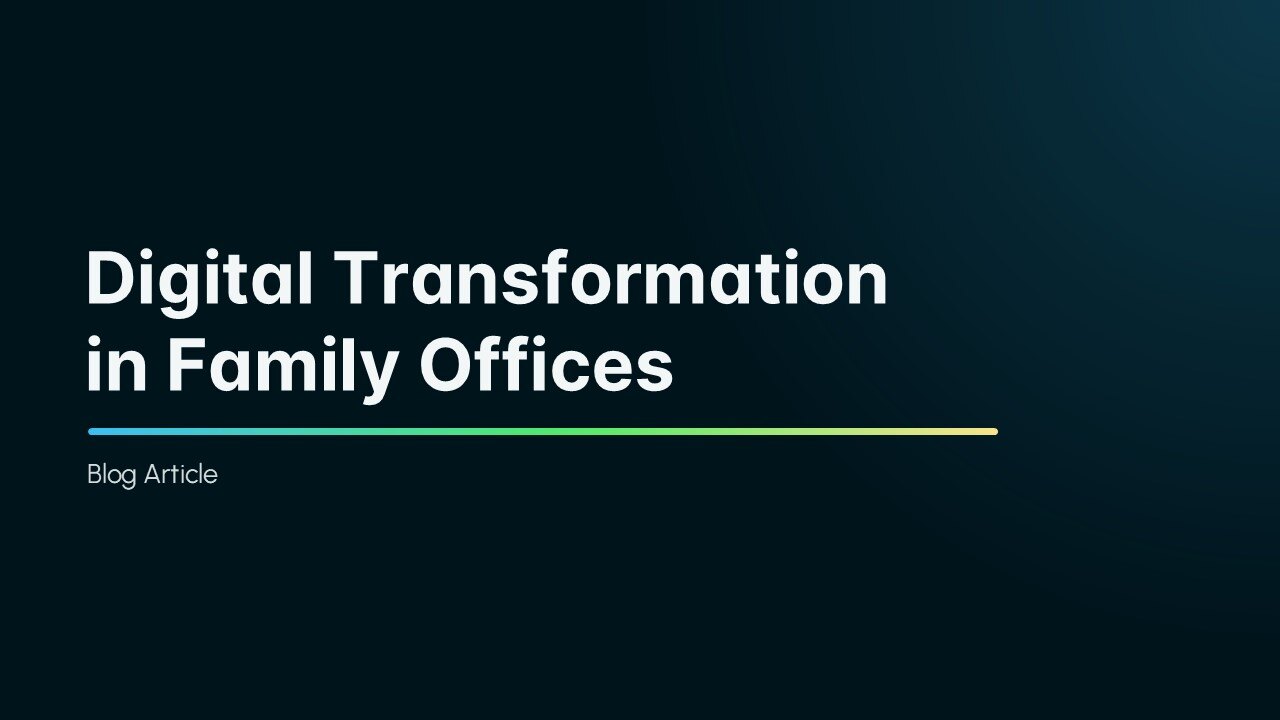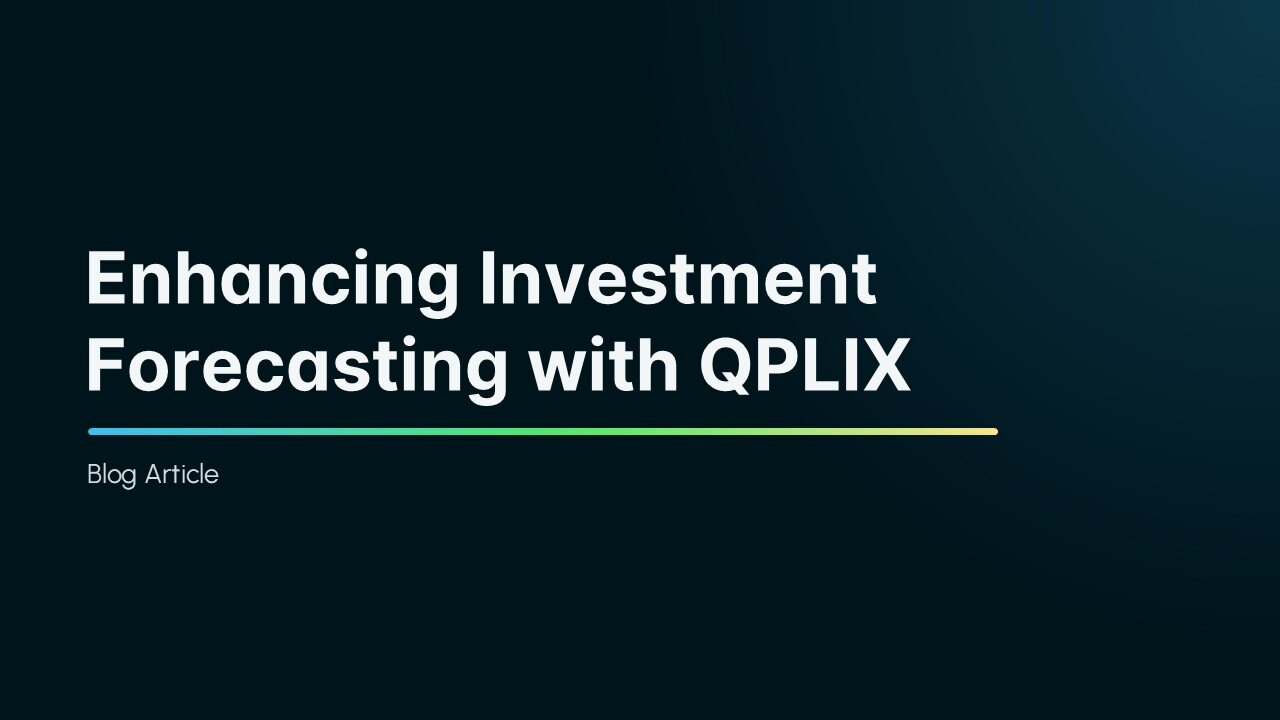Digital Transformation in Family Offices

Digitalisation and automation of family offices are revolutionising the industry. As a consequence, the demands on the technical expertise of employees are increasing significantly.
At the invitation of private banking magazin, QPLIX recently discussed trends in #wealthreporting and wealth controlling for family offices that will shape our industry in the coming years. I would like to summarise and share some interesting insights:
Automation and digitalisation are currently revolutionising the role of wealth controlling.
Routine operational tasks are increasingly being taken over by software. This allows controllers to focus more on analysing, interpreting and providing strategic advice.
As far as software is concerned, the ‘single source of truth’ is becoming the central concept.
Integrated software solutions that bring together all relevant data from different sources form the backbone of any efficient reporting and controlling system. This enables a holistic view of complex asset structures across all asset classes.
Real-time reporting offers new opportunities, but also harbours a few risks.
Unmoderated real-time reporting can lead to short-term thinking. The long-term investment strategy must therefore be translated into very specific investment guidelines and benchmarks in the software in order to prevent short-term market fluctuations from leading to deviations from the long-term investment strategy.
The demands on the technical expertise of family office employees are increasing significantly.
We are currently seeing a shift from traditional asset controllers to technically skilled specialists who need to understand and master both IT processes and tax aspects.
Despite increasing standardisation, individualisation and flexibility remain crucial.
Software is not a rigid framework for predefined processes, but must be adaptable in order to meet the specific needs of each family office - and its unique clients.
The cost structure in the sector is changing in terms of its composition, but not necessarily in absolute terms.
Although automation is leading to efficiency gains, the costs for highly qualified employees and specialised software solutions are increasing. The reference to operational savings potential does not necessarily justify falling fees.
The developments described are in the process of permanently changing the industry and, as always, they will create winners and losers. What does it take to be among the winners? I am convinced that those family offices and service providers who invest in modern technologies and employee training at an early stage will benefit: from above-average efficiency gains and from their capability to offer their clients decisive added value: not through lower costs, but through more precise analyses and better insights for decision-making.
Challenges lie ahead for smaller family offices in particular, which may find it difficult to keep pace with technological change. This could lead to increased consolidation or the increased use of external service providers.
Software providers will play a key role in this transformation. However, this presupposes that they are innovative and flexible enough to permanently offer new solutions for constantly changing regulatory requirements and individual customer needs. However, the challenge here lies in finding the right balance between standardising solutions at the same time in order to remain competitive. Wealth Tech Software companies too should therefore position themselves clearly in the competitive environment instead of getting strategically bogged down in the triangle of conflicting priorities of innovation, performance and costs.
To put it in a nutshell: Just like their customers, wealth management software providers should not make the mistake of wanting to be everything at once: the best in technology, the most innovative and at the same time the cheapest provider in their market.
Ultimately, the success of the entire family office sector will depend on how well it manages to combine state-of-the-art technology with human expertise. Only those who optimally combine both aspects will be able to meet the increasing demands of wealthy clients. QPLIX therefore relies on excellent partners who not only use their outstanding expertise to provide their clients with the best possible results. As development partners, they also help us to continuously develop our platform by solving our clients' most difficult challenges together.
The insights come from a round table discussion hosted by private banking magazine. The full discussion with further interesting insights can be found here (in German language):



